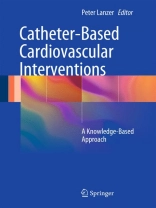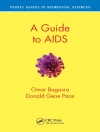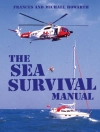Operator skills, and in particular decision-making and strategic skills, are the most critical factor for the outcome of catheter-based cardiovascular interventions. Currently, such skills are commonly developed by the empirical trial and error method only. In this textbook, for the first time, an explicit teaching, training, and learning approach is set out that will enable interventional operators, whether cardiologists, vascular surgeons, vascular specialists, or radiologists, to learn about and to develop the cognitive skills required in order to achieve consistent expert-level catheter-based interventions. It is anticipated that adoption of this approach will allow catheter-based interventions to become a domain of excellence, with rapid transfer of knowledge, steep learning curves, and highly efficient acquisition of complex skills by individual operators — all of which are essential to meet successfully the challenges of modern cardiovascular care.
สารบัญ
From the contents: Historical Background: Interventional cardiology.- Interventional vascular radiology.- Interventional neuroradiology.- Skills and Expertise: Cognitive science.- Cognitive skills.- Psychomotor skills.- Professional expertise.- Legal expertise.- Computer simulations.- Diagnostic modalities: Cardiovascular X-ray imaging.- Radiation protection.- Coronary angiography.- Cerebral angiography.- Peripheral angiography.- IVUS.- Fractional flow reserve.- OCT.- Clinical Concepts: Femoral and brachial artery access sites.- Radial artery access site.- Popiteal artery access site.- Pedal artery access site.- Closure devices.- Instrumentation.- Guiding catheters.- Coronary Artery Disease: Stenting strategies. Bicurcations.- Grafts, vein and arteries.- Chronic total occlusions.- Multi-vessel disease.- Emergency PCI.- Complications.












